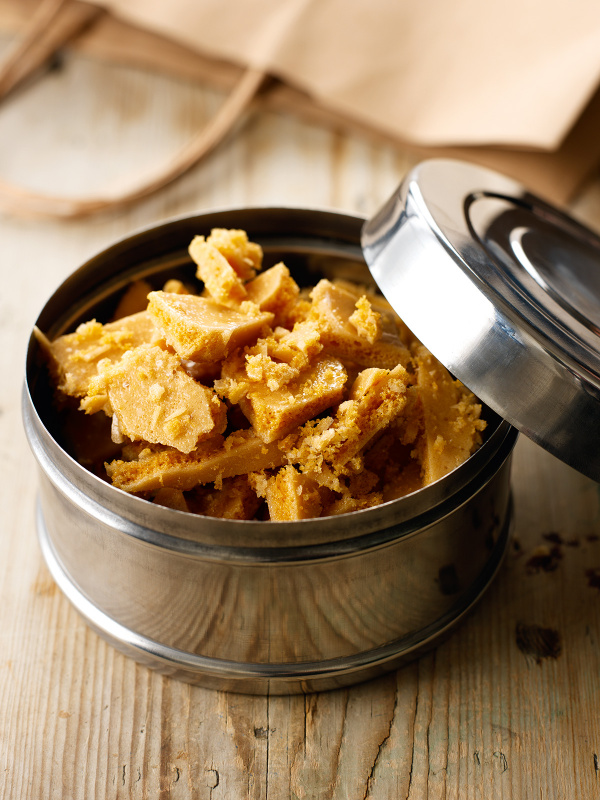Hokey Pokey Too Brittle
Asked by christine.simpson. Answered on 26th February 2014
Full question
Hi, I've tried Nigella's Hokey Pokey recipe many times but haven't been able to get it quite right yet. I add the bicarbonate of soda through a seive so I don't get lumps and then don't have to stir and deflate the mixture too much, and I use a candy thermometer to get the mixture up to just above 140C every time. I still sometimes get a really firm shell around a bubbly middle in the final hokey pokey. Should I be waiting for the mixture to cool a bit before adding the bicarb (saw that suggested in comments), or maybe heating to a slightly lower temperature, or for shorter/longer? Or maybe does the temperature of the room it's setting in make a difference? Thank you, Christine
Our answer
Nigella's Hokey Pokey is a popular recipe and often the sugar is not cooked for long enough so the candy turns out soft and sticky. However as you are using a sugar thermometer to cook the sugar to hard ball stage then we suspect that the problem lies not so much in the cooking of the sugar but in the stage where you add the bicarbonate of soda. The Hokey Pokey should have a crisp outer crust, but should have a multitude of small holes on the inside.
If you are not stirring the bicarbonate of soda into the cooked sugar then it will not be evenly distributed and this will lead to patches of very large bubbles (where there is a lot of bicarbonate of soda) and patches of dense, harder candy (where there is no bicarbonate of soda). We appreciate that you do not want to deflate the Hokey Pokey too much but you do need to stir or whisk the bicarbonate of soda into the cooked sugar mixture and you can do this gently with a whisk or a spoon. You can let the sugar mixture cool very briefly, but only for a few seconds as if you leave it for too long the sugar will start to harden too much. Then quickly pour the mixture into the prepared tin, so that the bicarbonate of soda is still active as the candy settles in the tin.





Tell us what you think
Thank you {% member.data['first-name'] %}.
Explore more questionsYour comment has been submitted.